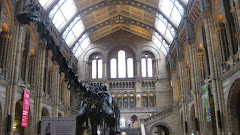To bodies that had been laid in earth, in joyful expectation of a far different awakening, there came that hasty, lamp-lit, terror-haunted resurrection of the spade and mattock. The coffin was forced, the cerements torn, and the melancholy relics, clad in sackcloth, after being rattled for hours on moonless by-ways, were at length exposed to uttermost indignities before a class of gaping boys….The wife of a farmer, a woman who had lived for sixty years…was to be rooted from her grave at midnight and carried, dead and naked, to that far-away city that she had always honoured with her Sunday best; the place beside her family was to be empty till the crack of doom; her innocent and almost venerable members to be exposed to that last curiosity of the anatomist.
This passage evoked more horror to me than the discovery in the same story that other bodies were supplied to anatomists by murder, more than the final supernatural corpse-swap at the end of the story. Stevenson is giving a sense of the general Victorian disgust at autopsies and grave-robbing in general, not just the outrage against criminal abuses of the system by Burke and Hare. This disgust stems from both religion and personal dignity, so that the act of body snatching is at the same time a religious desecration and anindividual humiliation. No one would want a family member on display before these “gaping boys” and even the general public, who were also admitted to anatomy lectures if they were interested. But why the change? The increasing professionalization of medicine and the changing public perception that autopsies help understand a loved one’s illness as well as educate medical professionals have both made the dissection of corpses a more accepted procedure. “Dedicating your body to science” has a nice sound it, today, without the same kind of shame and horror Stevenson evokes in "The Body Snatchers."
Boris Karloff (Frankenstein's monster) and Bela Lugosi (Dracula) are both in this movie, which claims to be "not Hollywood bunk--but dramatized from unthinkable facts of record!" Click here to see the trailer.

No comments:
Post a Comment